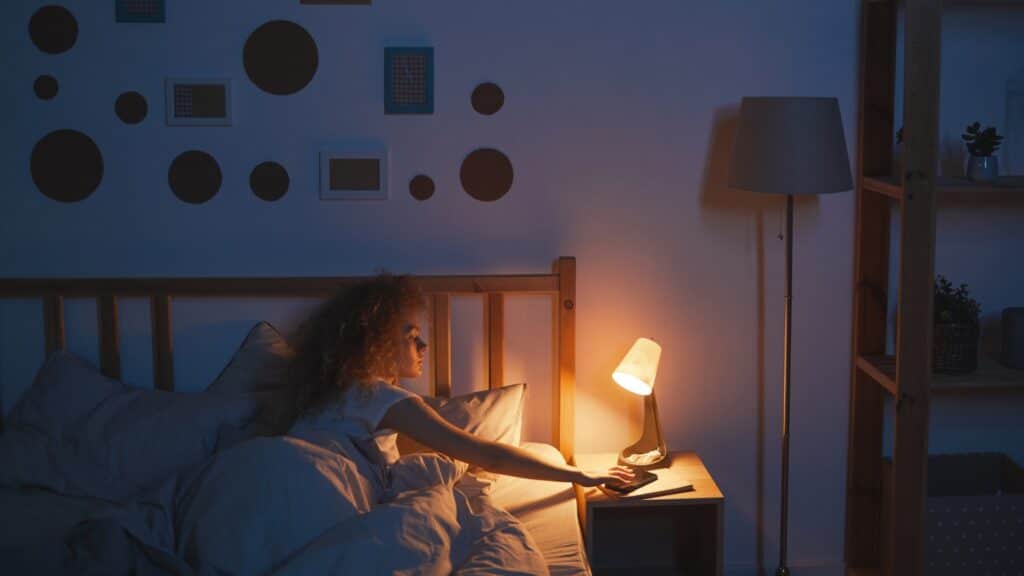We live in a world that never stops, a 24/7 cycle of work, social obligations, and endless to-do lists. Amidst the hustle and bustle, sleep often gets relegated to the background, treated as a luxury rather than a necessity. But what if I told you that a lack of sleep isn’t just making you feel groggy or less than your best? It’s actually a silent killer in your daily routine, affecting everything from your cognitive function to your emotional well-being. The ramifications are far-reaching and insidious, affecting not just you but also those around you.
In this article, we aim to pull back the curtain on the often-overlooked phenomenon of sleep loss. Far more than just “feeling tired,” insufficient sleep can disrupt your life in ways you’ve never even considered. Whether it’s affecting your job performance, clouding your judgment, or straining your personal relationships, the subtle repercussions are numerous and consequential.
So, are you ready to delve into the mysterious world of sleep and uncover what you might be sacrificing by cutting those extra hours? Are you prepared to tackle the root of many challenges you face daily but never thought to attribute to lack of sleep? If so, keep reading to explore the challenges that come with insufficient sleep, and discover transformative solutions that can elevate your life in unimaginable ways!

The Science of Sleep
Sleep is a fundamental biological necessity, yet it’s often the first thing we compromise when life gets busy. But why is sleep so vital? The science of sleep reveals its multifaceted role in maintaining a balanced and fulfilling life. During sleep, your body goes through multiple cycles that serve various functions, from REM (Rapid Eye Movement) sleep that aids memory consolidation to the deep stages of non-REM sleep that focus on physical restoration.
Yet, it’s not just about physical well-being; sleep has a considerable influence on your brain. Neurotransmitters and hormones, regulated during sleep, play pivotal roles in mood and cognitive function. Imagine your brain as a computer that needs downtime for essential system updates and maintenance. Skipping these crucial periods may not show immediate catastrophic results, but over time, your “system” becomes increasingly prone to glitches and malfunctions, such as poor decision-making and impaired emotional intelligence.
The intricacy of sleep cycles and their impact on various body functions are indicative of how much we stand to lose when we disregard sleep. Underestimating the science of sleep is a mistake we can’t afford to make, as its value goes far beyond just feeling refreshed—it’s about optimizing your life.

The Sneaky Ways Sleep Loss Creeps In
We often attribute a lack of sleep to obvious factors like late-night work or social engagements. However, there are more subtle, sneaky ways that lack of sleep infiltrates our lives. For instance, our tech-saturated lives expose us to screens emitting blue light, which disrupts the natural production of melatonin, the hormone responsible for sleep. Even what you might consider “harmless” evening routines, like a quick scroll through social media or watching a late-night TV show, could be affecting your sleep cycle more than you realize.
Moreover, lifestyle choices like excessive caffeine consumption or irregular eating habits can inadvertently contribute to poor sleep. Have you ever considered that your morning coffee could be affecting your sleep quality? The half-life of caffeine can linger in your system for hours, throwing off your body’s internal clock.
Additionally, the myth of “catching up on sleep during weekends” doesn’t hold water scientifically. Erratic sleep schedules confuse your body’s internal clock, leading to a phenomenon called “social jet lag,” causing more harm than good.
Sleep loss doesn’t announce itself; it slowly but insidiously takes over your life, masked by the chaos of everyday living. Recognizing these less obvious factors is the first step in reclaiming the restorative sleep you deserve.

Cognitive Consequences
The role of sleep in cognitive performance is monumental but often overlooked. Lack of sleep not only affects concentration but also has a long-term impact on critical cognitive functions such as memory, attention, and problem-solving. When you cut corners on sleep, you’re essentially slowing down your brain’s processing speed. The result is that tasks that usually take minimal effort become challenging endeavors, leading to inefficiency and errors.
Recent research has delved into how sleep or the lack of it influences our decision-making capabilities. Lack of sleep can result in a phenomenon known as “cognitive tunneling,” where your focus narrows down to immediate tasks at the expense of the bigger picture. This impaired judgment can have severe consequences, particularly for people in decision-making roles or high-stakes environments. Another aspect that suffers is creativity. A well-rested mind is far more adept at “out-of-the-box” thinking and connecting disparate ideas, something that’s severely compromised when suffering from a lack of sleep.
So, the cost of forgoing sleep is not just physical fatigue; it’s an overall cognitive decline. And in a world that increasingly values intellectual capital and innovative thinking, loss of sleep could well be your undoing in both personal and professional arenas.

Performance Outcomes
It’s no secret that our performance in virtually every aspect of life is closely tied to the quality and amount of sleep we get. Whether it’s acing an exam, shining in a work presentation, or simply being emotionally available for loved ones, sleep plays an integral role. Various studies have demonstrated the correlation between inadequate sleep and reduced productivity. Even worse, this drop in performance isn’t always immediately noticeable, making it a silent thief that gradually steals your potential.
Lack of sleep also has a significant impact on physical performance. Athletes have long recognized the role of proper rest in muscle recovery and performance optimization. However, you don’t have to be a professional athlete to feel the physical repercussions of inadequate sleep. A lack of rest leads to slower reaction times, reduced stamina, and a higher susceptibility to injuries. It’s not just about pulling an all-nighter before a big game; it’s the cumulative effect of consistently poor sleep that deteriorates your physical capabilities.
In sum, sleep loss has a domino effect that topples multiple aspects of your performance, from cognitive and emotional intelligence to physical abilities. Neglecting sleep is essentially neglecting your potential to perform at your best.

What You’re Really Losing
When you miss out on sleep, you’re sacrificing more than just a few restful hours; you’re letting go of vital opportunities for your mind and body to restore and rejuvenate. Every sleepless night chips away at your overall well-being, slowly draining you of your vitality, clarity, and joy. In fact, it’s not just about feeling tired the next day; it’s about diminishing the quality of your life one day at a time.
Emotionally, a mind in need of sleep is more susceptible to mood swings, stress, and negative thought patterns. It’s like casting a cloud over your emotional landscape, making everything seem more daunting and less enjoyable than it actually is. This is especially important for interpersonal relationships, where a lack of sleep can manifest as irritability and reduced empathy, creating unnecessary tension with those around you.
On the professional front, the consequence of poor sleep is lost productivity and squandered opportunities. The toll on your performance can manifest in missed deadlines, subpar work, and even career stagnation. In essence, each hour of lost sleep is an hour lost in achieving your fullest potential.

Making Sleep A Priority
The good news is, it’s never too late to make sleep a priority and reclaim what you’ve been missing out on. After understanding the gravity of what’s at stake, taking steps to improve sleep becomes a non-negotiable investment in your life’s quality. One of the most crucial actions is setting a consistent sleep schedule. Our biological clocks thrive on regularity, and a consistent sleep pattern helps optimize your body’s natural rhythms.
Of course, it’s not just about the number of hours but the quality of sleep you get. Creating a sleep-friendly environment is essential. This involves having a comfortable mattress, blocking out light and noise, and perhaps incorporating calming pre-sleep rituals like reading or taking a warm bath. Technology, particularly screens emitting blue light, should be avoided at least an hour before bedtime.
Finally, take a holistic approach. Diet and exercise have a direct bearing on sleep quality. Consuming sleep-friendly foods like almonds, turkey, and chamomile tea can help, as can avoiding stimulants like caffeine and nicotine close to bedtime. Incorporating exercise into your routine, even if it’s just a 20-minute walk, can make a significant difference. Remember, making sleep a priority is making YOU a priority!
Conclusion
In today’s fast-paced, always-on world, sleep often takes a back seat, regarded as a luxury rather than a necessity. Yet, as we’ve explored, the cumulative effects of insufficient sleep touch nearly every aspect of our lives, from cognitive function and emotional well-being to professional performance and personal relationships. The true cost of neglecting sleep is not just a cranky mood or a sluggish morning; it’s a persistent erosion of the quality of your life.
The good news is that the antidote is within your reach. By making sleep a non-negotiable priority, you’re not just giving yourself the gift of rest, but also clarity, vitality, and enhanced potential in all your pursuits. A commitment to better sleep hygiene can be transformative, creating a positive ripple effect that permeates your entire existence.
So if you’ve been undervaluing sleep, let this be the moment of realization. It’s time to reclaim those lost hours and restore balance to your life. You owe it to yourself to give sleep the attention it deserves. Starting tonight, reset your sleep habits, rekindle your relationship with your bed, and rediscover what it feels like to truly live, not just exist. This is your wake-up call to go back to sleep!
















